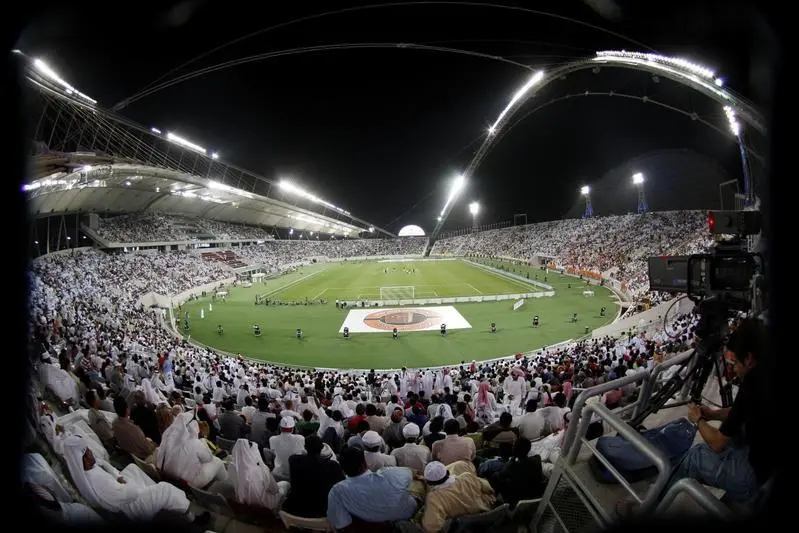PHOTO
By Tom Finn
DOHA, Jan 26 (Reuters) - A new documentary film is offering a rare glimpse into the lives of poor African and Asian migrant workers building facilities for the 2022 World Cup in Qatar - and it does so using soccer itself.
Leaving behind dusty workers' camps for gleaming soccer stadiums, dozens of migrant labourers compete in a football tournament of their own.
A workers' cup, staged each year in Doha by the organisers of the 2022 competition, brings together teams representing local construction firms. They play for cash prizes in the vast stadiums many of them helped build.
The documentary - called "The Workers Cup" and launched at the Sundance film festival in the U.S. state of Utah last week - focuses on the hard lives of a 21-year-old Ghanaian worker, Kenneth, and his Indian, Kenyan and Nepali teammates.
Conditions for the 1.6 million mainly Asian workers in Qatar have come under sharp scrutiny from rights groups who say migrants live in squalor and work without proper access to water and shelter.
On Friday, a British man fell to his death while working at Doha's Khalifa International Stadium - an incident Qatar's World Cup organising body said it was investigating.
It was the third death on a World Cup site in the last year.
The Gulf Arab kingdom denies abusing workers and says it is implementing labour reforms.
In the film, Kenneth grapples with his fading ambitions of becoming a professional footballer, returning from scoring goals at matches watched by hundreds to his low-paid job on a construction site and a cramped room in a desert labour camp.
His teammates include Paul, a Kenyan frustrated by not being able to interact with the opposite sex, Padam, a Nepali office worker struggling to maintain a long-distance relationship, and Umesh, an Indian father of two children named after Manchester United players and who hopes to save enough to build his family a home.
Many of the men say they signed contracts under false pretenses from recruiters in their home countries and now work long hours for scant salaries.
"The life that I'm living here - I try to hide it from my friends back home because they wouldn't understand it," says Paul, who left a job as a bartender in Kenya's Westgate Mall after it was attacked by gunmen in 2013 to travel to Qatar.
"But the life that I'm living here, it's a different life man. It's like you're trapped or something," he says.
The players forget their dejection - if only temporarily - as they sail to victory in several matches, winning the applause of their peers before losing in the semi-finals and returning to building - not playing in - Qatar's World Cup stadiums.
(Editing by Noah Browning/Jeremy Gaunt) ((Tom.Finn@thomsonreuters.com))





















